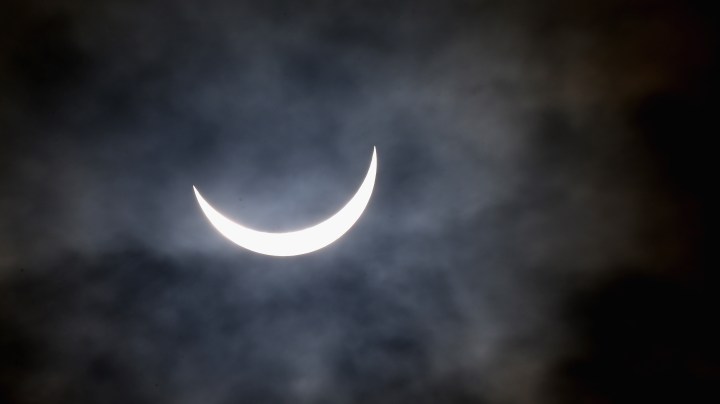Thousands of Years Ago, the Maya Predicted the 1991 Solar Eclipse to the Day

A rare partial solar eclipse is seen over Northamptonshire on March 20, 2015 in Northampton, England. Photo by Clive Mason/Getty Images News
As talks around the solar eclipse hit a fever pitch, we’re here to remind you about the Maya’s astronomical prowess. “Every century of recording, they would get more accurate,” University of Colorado anthropology professor Payson Sheets told the Denver Post. “The prediction would be more precise.” They were so precise that when anthropologists Harvey and Victoria Bricker decoded pre-16th century codices, they learned that the Maya had accurately predicted the 1991 solar eclipse.
Live Science reports that the Brickers – who documented their findings in their book, Astronomy in Maya Codes – analyzed four different codices from Mexico, Spain, Germany, and France to learn how the night sky appeared to the Maya. Using both the Maya calendar (dating back to the 11th or 12th century) and our modern-day calendar as well as “modern knowledge of planetary orbits and cycles to line up the Maya’s data with ours,” the anthropologist duo found that they were extremely accurate.
In 1983, using the Maya codices, the Brickers predicted the next total solar eclipse in the Maya area – Honduras, El Salvador, Mexico, Belize, and Guatemala – would take place on July 11, 1991, according to the Denver Post. Live Science reports that the prediction came within a day. Regardless, they were incredibly accurate.
Though the Brickers had four codices to work from, their discovery is also a reminder that so much of this written history is gone. “The Spanish thought that some of their writing was the work of the devil and they were there to convert the Maya to Christianity so the Spanish destroyed every book they could,” Sheets added. So we can only imagine what else they observed and predicted.